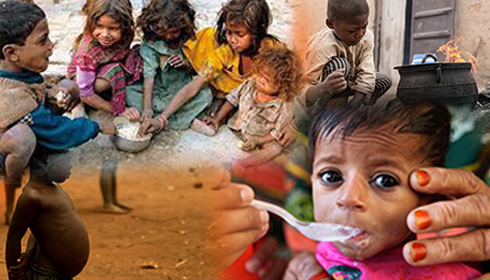
IFPRI, UNDP, World Bank, and WHO join forces with IPC to tackle global food crises
In a major development, the International Food Policy Research Institute (IFPRI), the United Nations Development Programme (UNDP), the World Bank, and the World Health Organisation (WHO) have recently joined the Integrated Food Security Phase Classification (IPC) initiative to expand its global partnership forming a High-Level Executive Committee (HLEC).
The world is grappling with a serious hunger and malnutrition crisis, as per World Food Programme (WFP) estimates, indicating that over 333 million people will confront acute food insecurity in 2023.
This marks a staggering increase of nearly 200 million people compared to pre-COVID-19 levels. Burkina Faso, Mali, Somalia, and South Sudan are anticipated to witness famine affecting at least 129,000 individuals.
WFP confronts challenges such as funding shortfalls and reduced assistance, putting at risk the progress achieved so far. It's imperative for the global community to uphold its commitment to eradicate hunger and malnutrition by 2030.
The number of acutely hungry people is rising faster than funding can keep pace, and the expenses associated with delivering food assistance have reached unprecedented levels due to surging food and fuel prices. Failure to address these challenges could result in a setback to our collective goal.
"The expanded partnership will be critical when it comes to informing evidence-based strategies to tackle the root causes of protracted food crises and address chronic food insecurity," Hassan Ali Ahmed, Chair of the IPC Global Steering Committee and representative of Action Against Hunger said.
By incorporating the collective knowledge of experts from diverse fields, the IPC aims to provide decision-makers with the tools necessary for informed choices leading to lasting food security solutions, Ahmed added.
This expansion occurs amid escalating conflicts, unpredictable weather patterns, and fluctuating food prices that may intensify food and nutrition security-related challenges.
Also Read:
| - 1200 children die from suspected measles and malnutrition in Sudan as civil war continues |
Dr Mike Ryan, Executive Director of the Health Emergencies Programme at WHO, emphasised saying, "Food crises are health crises. Disease and malnutrition form a vicious cycle, each increasing the risk of the other and threatening the health of affected populations, particularly children."
On the other hand, the World Bank emphasises that strengthening international partnerships will fortify an effective and coordinated global response.
"Conflicts and climate change will continue to drive the number of people facing hunger. In responding to a crisis, the value of data in decision-making becomes more apparent," Martien van Nieuwkoop, Global Director for Agriculture and Food at the World Bank, said.
UNDP sees the IPC Chronic Food Insecurity scale as an opportunity to advance sustainable food systems and bolster community resilience. Devanand Ramiah, UNDP’s Crisis Bureau Deputy Director (a.i.), affirmed, "UNDP remains steadfast in its commitment to fostering sustainable food systems, advancing global food security, and building resilience among vulnerable communities."
The IPC, in existence for nearly 20 years and implemented in over 30 countries, informs more than US $6 billion in food crisis response decisions annually.
"With still rising global food insecurity, IPC’s work is more important than ever. We need sound and accurate early warning systems to adequately inform preventative action to end hunger and malnutrition," said Dr Johan Swinnen, Director-General of IFPRI.
Drs Swinnen (IFPRI), Ryan (WHO), and Mr Nieuwkoop (World Bank) are representatives on the newly formed IPC High-Level Executive Committee.
The formation of the High-Level Executive Committee (HLEC), the highest decision-making body in the IPC global governance system, coincides with the expansion. The HLEC is responsible for presenting the IPC on the global agenda and aiding the initiative in overcoming hurdles in countries facing serious food and nutrition crises. It is made up of representatives from IPC worldwide partner organisations, including newly joined ones.
"The IPC High-Level Executive Committee is a beacon of collaborative power, driving the global effort to address the food and nutrition crises facing the world today," said Mr Ahmed.